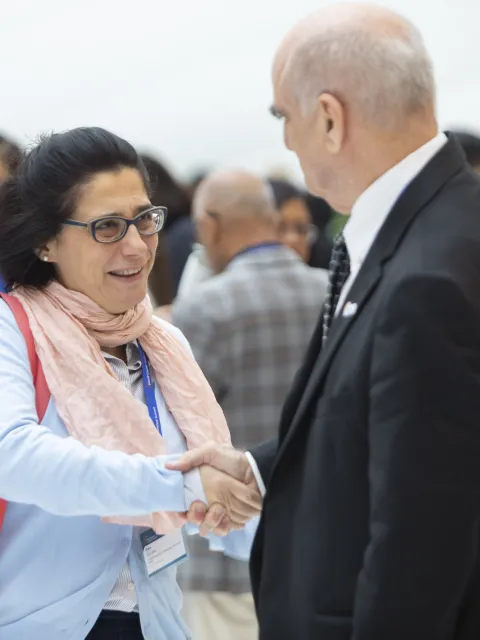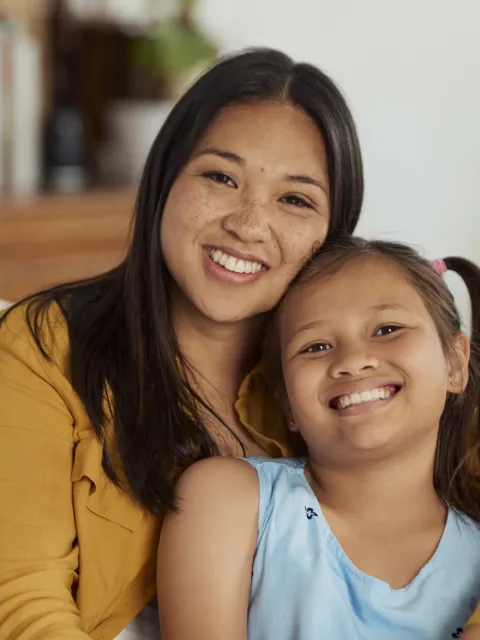A new surge in COVID-19 sets cancer care in Namibia back by over a decade
For countries, such as Namibia, it is far too early to talk about “post-COVID-19” as the pandemic will strain capacity of health systems for years to come, compromising the ability to address delays in cancer care.

In mid-March 2020, when the pandemic first took hold, the Cancer Association of Namibia’s fundraising drives and other events planned for the year – some booked for over a year –had to be cancelled or suspended. Priority was given to patient support and operations moved offsite, despite many of the staff not having access to the internet.
A form of normality returned in June but the Association was still far from functioning at full capacity. The second wave in December was very small – but in early June this year, the Delta variant reached the northern Zambezi region then tore through the country. As Europe, North America and other regions with resilient health systems and widespread access to vaccines were loosening restrictions – and there was talk about post-COVID-19 recovery – Namibia was experiencing the world’s highest infection rate, with tragic levels of hospitalisations and coronavirus-related deaths.
In June-July 2021, Namibia experienced one of the worst rates of COVID-19 in the world in terms of incidence and mortality, putting pressure on other important health services such as cancer.
Source: John Hopkins University CSSE COVID-19 data.
“Everything we were working towards broke down as the third COVID-19 hit in mid-June. All the actions we have taken to improve cancer control in the country are threatened – they have not died but they are wobbling.”
– Rolf Hansen, CEO, Cancer Association of Namibia, a 2019 UICC Country Champion in UICC’s Cancer Advocates programme
Rolf Hansen, CEO,
Cancer Association
of Namibia
The harrowing weeks marking the peak of the pandemic in June-July 2021 overwhelmed the health system, leading to a lack of ICU beds and oxygen. “Windhoek’s largest cemetery is filled to capacity and the crematorium has a backlog of six to eight months,” says Rolf Hansen.
Cancer patients stayed home during this third wave and are only now starting to return as the cases and mortality once again begin to drop. In some cases, treatment is being sent to patients living far from the capital Windhoek to avoid unnecessary travel, a system that was set up by the Cancer Association of Namibia during the first wave. But the impact of this most recent devastating wave on top of the first will be felt for years to come.
The domino effect of the pandemic on many aspects of the economy is particularly acute in a country with limited resources. Taxes from tourism have dropped significantly, for instance, providing far less revenue for the national budget and resulting in cuts to health care.
“When it comes to cancer screening, detection and diagnosis, we are literally where we were 15 years ago, five-ten years ago for treatment. Not just cancer, everything the country has worked towards. We are also seeing upticks in HIV and malaria outbreak. The focus has shifted so dramatically to COVID-19 only. But what we do well in Namibia is we keep going. And we have to keep going.”
– Rolf Hansen, CEO, Cancer Association of Namibia
All the projects and programmes initiated by the Cancer Association of Namibia – new nationwide cancer referral centres, more cervical cancer screening and treatment points of care, quality psychological support, HPV testing and vaccination, ultrasound units for breast cancer detection, women’s health and family planning – have all been put on hold.
The Association has also been heavily affected at an organisational level, in terms of fundraising and in its service delivery.
A fundraising case study
A Country Champion in UICC's Country Advocates programme, the Cancer Association of Namibia has initiated a number of activities thanks the continued development of the expertise and skills of its staff and notably as a result of the organisation's continued and effective fundraising efforts, such as the "An apple a day helps keep cancer away" project.
Its longstanding fundraising programme “An apple a day helps keep cancer away”, selected as one of the “global innovative projects of hope” at UICC’s 2018 World Cancer Congress, involved raising funds by selling apples to bank employees with a health brochure on cancer. The initiative had been extended into schools to reach children and promote a healthy lifestyle while raising additional funds. But this project is now on hold as schools have not fully reopened.
The Association had also developed a strong partnership with the largest tourism company in the country to provide accommodation, meals and transportation for cancer patients, as well as for staff working with patients, so that all donations would go to support people living with cancer. This has been impossible to maintain with the collapse in tourism.
Instead, staff now cook and sell meals on Wednesdays to raise money, working in shifts. On Fridays, they operate a “pay it forward” soup kitchen: the Association gets individuals or private companies to donate ingredients and the staff prepares meals for vulnerable cancer patients as well as frontline health workers who are often working double shifts.
The Association is also fortunate to be well managed, cutting its budget in half to optimise its services for people with cancer, and having made contingency plans and set aside funds that should enable them to weather the storm.
“It’s important to run an organisation like a business and not survive from one fundraiser to the next. And we need to be resilient and go back to the drawing board. We are now looking at old blueprints, reviving ideas from 25 years ago. We are reaching out to each other, the pandemic has united us.”
– Rolf Hansen, CEO, Cancer Association of Namibia
A fundraising case study
A Country Champion in UICC's Country Advocates programme, the Cancer Association of Namibia has initiated a number of activities thanks the continued development of the expertise and skills of its staff and notably as a result of the organisation's continued and effective fundraising efforts, such as the "An apple a day helps keep cancer away" project.
Last update
Tuesday 21 September 2021
